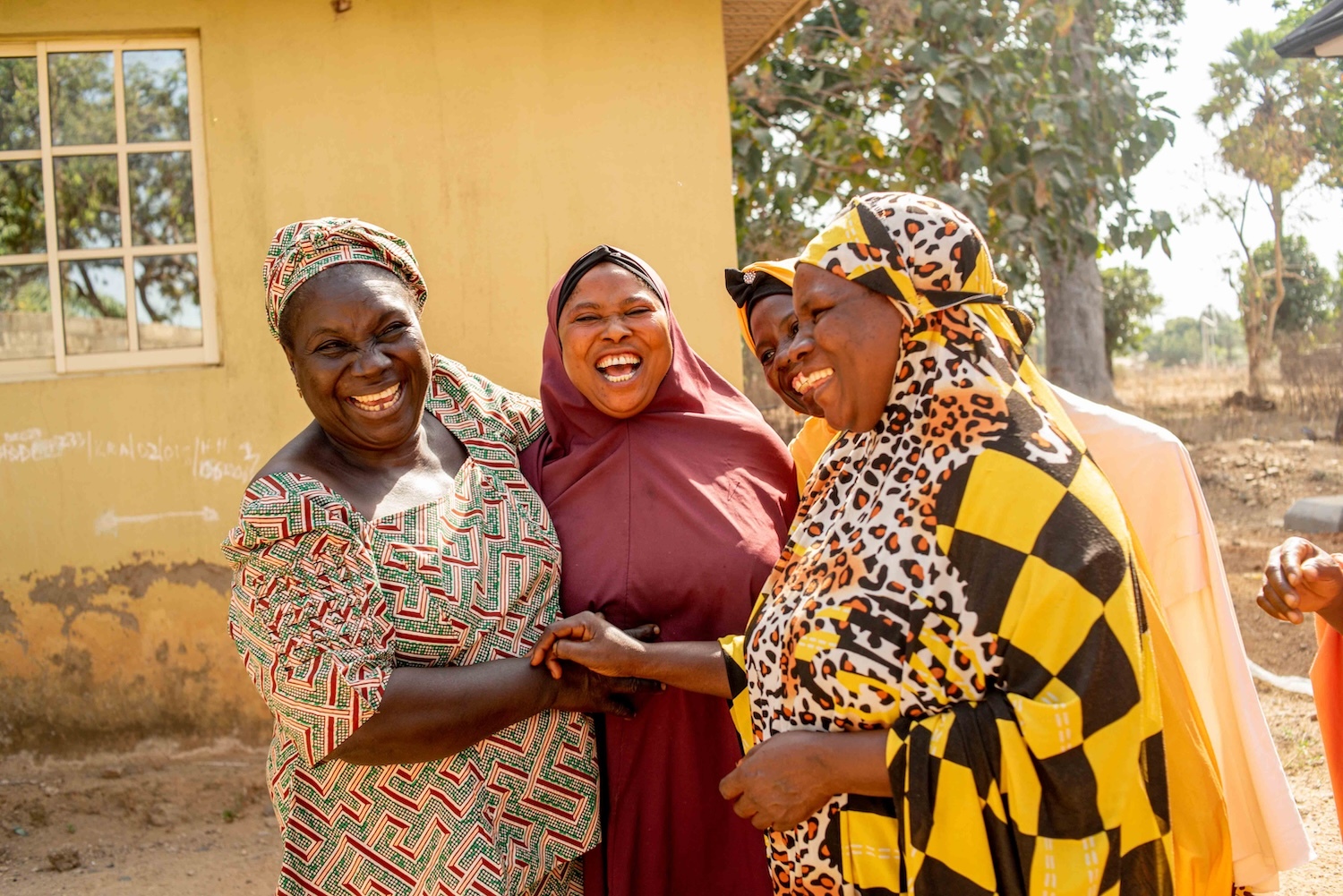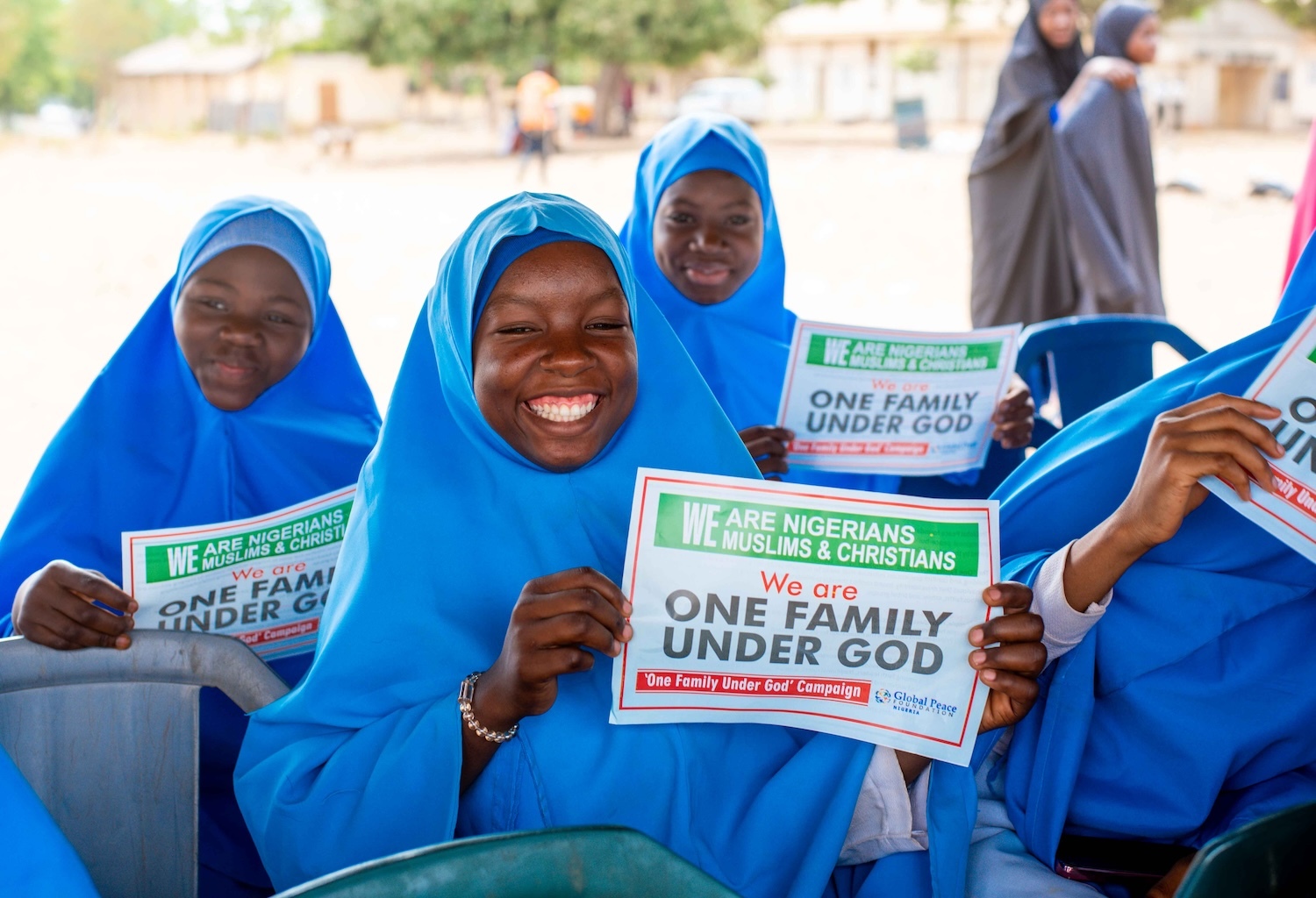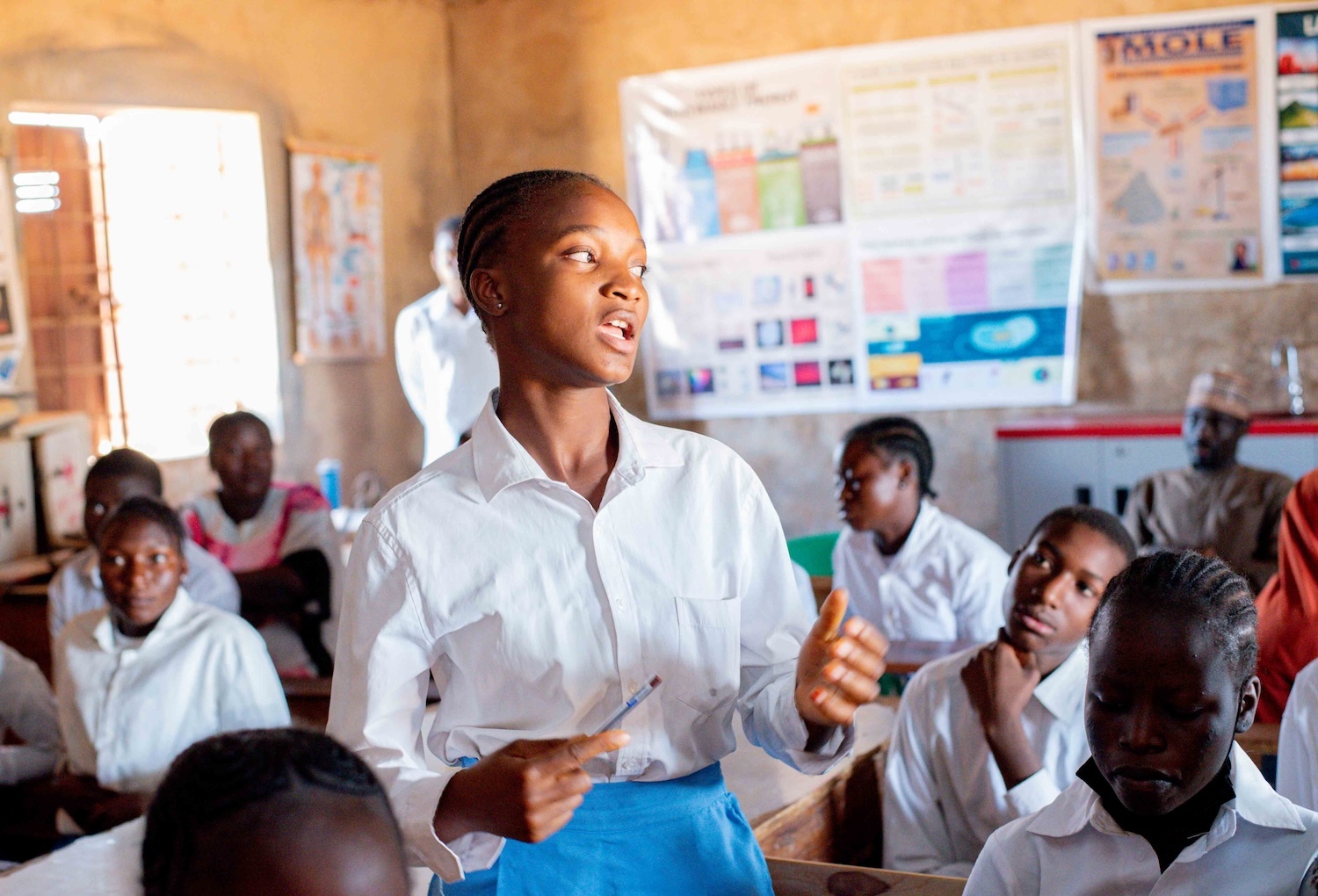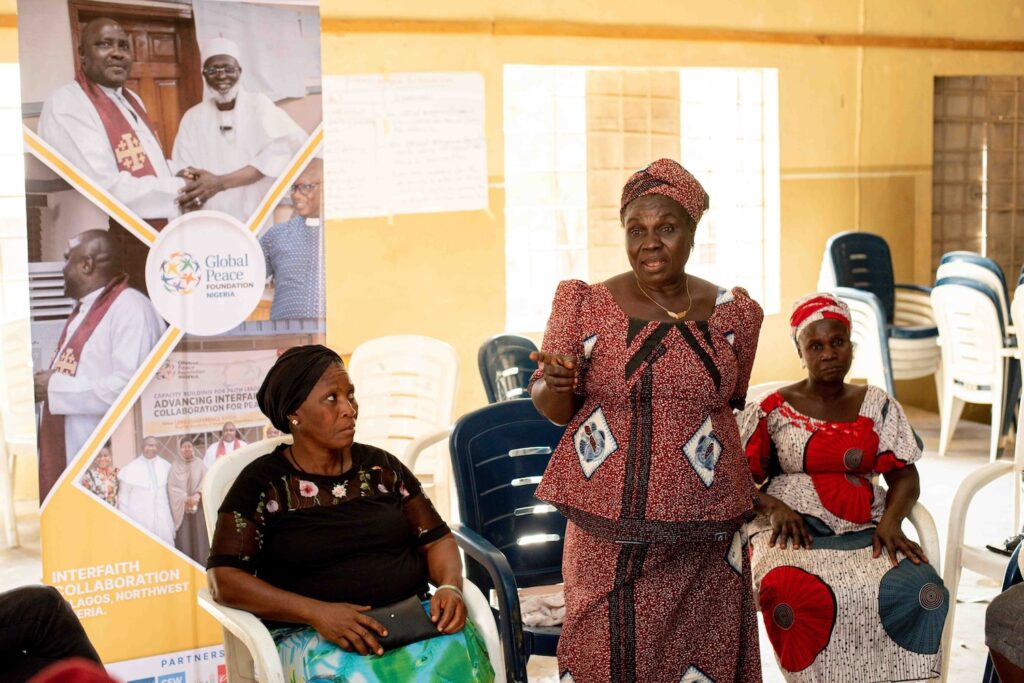
Women in Kagoro chiefdom in a group discussion at an evaluation of GPF peacebuilding programs.
Diversity is a strength universally relied upon in peacebuilding. The Global Peace Foundation (GPF) Nigeria strongly recognizes the power of bringing together people from diverse backgrounds to foster unity, understanding, and peaceful development. This is evident in the organization’s implementation of the “Building Community Resilience through Interfaith Dialogue and Understanding” project, which was conducted in Kagoro Chiefdom of Kaura LGA, Kaduna State, North West Nigeria, from September 2022 to February 2024.
Strategically implemented, the project first gained the support of key community gatekeepers and leaders through advocacy visits. This included garnering the buy-in of the paramount ruler and the chief of Kagoro. Valuable conflict dynamics and socioeconomic data were then gathered via a comprehensive baseline survey and needs assessment, contributing to a well-defined community work plan.
Capacity-building workshops were essential to empowering key stakeholder groups, such as traditional rulers and women, youth, and faith leaders. Providing peacebuilding and conflict resolution knowledge and skills to the diverse attendees created trust and confidence among the participants, thus setting the stage for meaningful dialogue and a path to sustainable peace. Equipping 160 leaders with the GPF Nigeria program handbooks further enhanced their ability to engage in effective community peacebuilding activities.
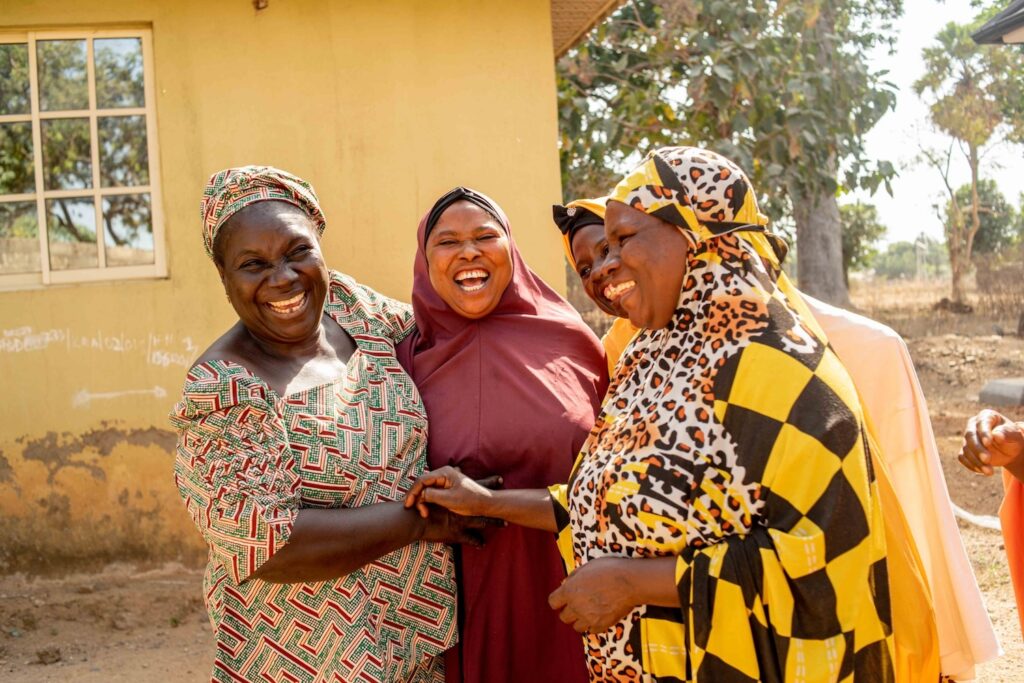
Nigerian women in Kagoro participating in GPF peacebuilding programs.
The initiation of the Kagoro Peace and Reconciliation Committee created a formal structure and process for diverse leaders to gather in a safe environment, diffuse tensions, and support collaborative and peaceful conflict resolution. In addition, community dialogue forums cultivated cooperation and trust among diverse community members, generating a mutual investment in peace and security in their communities.
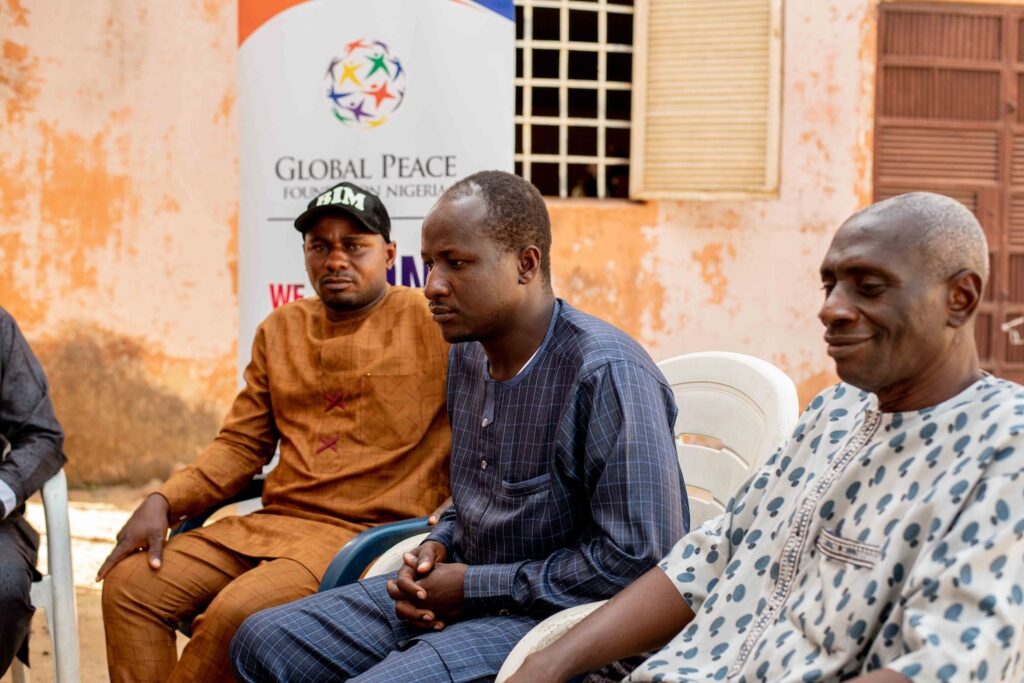
Men in Kagoro chiefdom in a group discussion at an evaluation of GPF peacebuilding programs.
Investing in women benefits families, communities, and society at large. Recognizing the inherent ability of women to be positive change agents, the project provided financial literacy training and established women’s cooperative societies. Justine, a project participant, noted the importance of the project’s investment in women, “Women didn’t have any avenue to meet and discuss issues that affect their lives. Thanks to the Global Peace Foundation Nigeria, a structure for women was formed—the cooperative group.”
As a result of project accomplishments, the Kagoro natives and the Fulani communities experienced improved intercommunity interactions. Bulus Daniel stated, “Before GPFN stepped in, the Natives of Kagoro couldn’t visit any Fulani Community, and vice versa.” The restoration of peace marked a significant project milestone, which culminated in the AFAN cultural festival being held for the first time in many years. Various cultural and religious groups came together at the festival and showcased their diverse talents and cultural heritages.
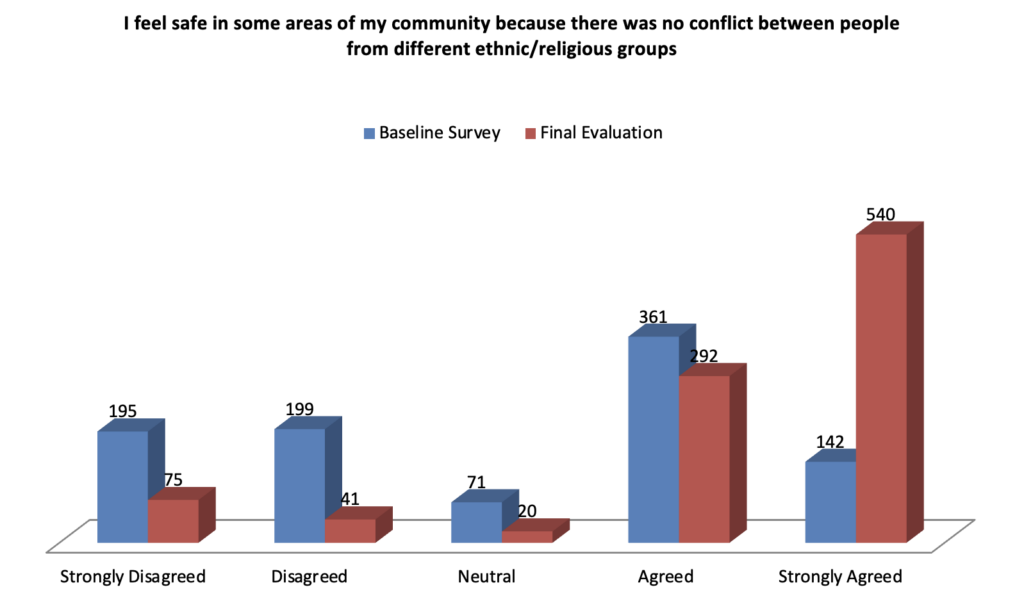
As noted in the project’s Final Evaluation Report, the outcomes of the “Building Community Resilience through Interfaith Dialogue and Understanding” project offered several fundamental lessons. They include the essential need for “community engagement and ownership, tailored interventions based on need, capacity building for empowerment, and formal structures and dialogue.” Each one of these is critical to building trust and achieving sustainable peace among members of interfaith religious groups based on the foundation of our shared humanity.
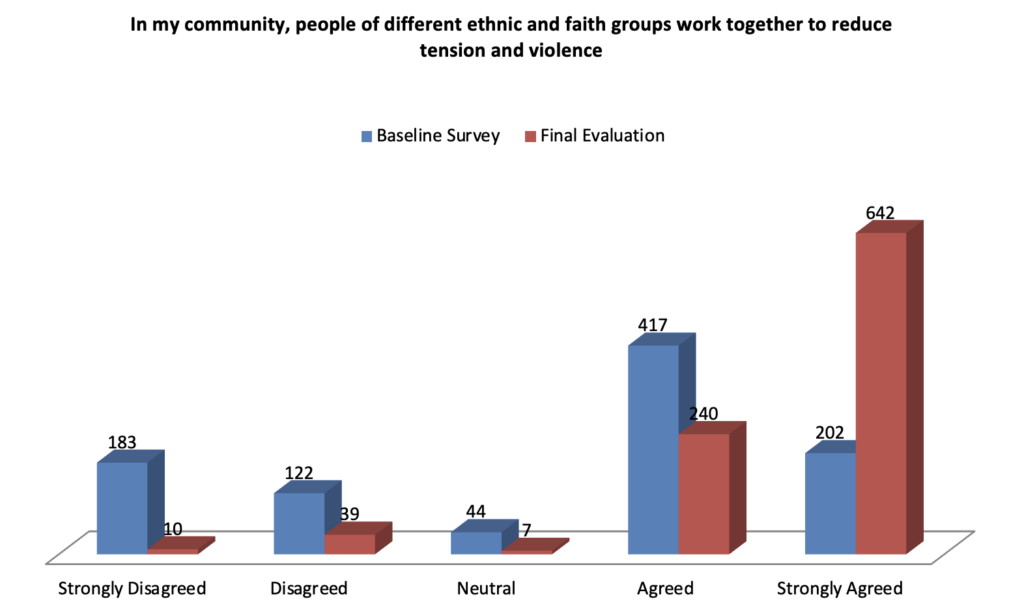 Post-project assessment is critical in determining a project’s effectiveness. Understanding this, GPF Nigeria conducted a focus group for this purpose. It concluded that the project was successful in promoting unity and peace among its diverse participants, fostering unity and collaboration through the establishment of cooperative societies, solidifying security communities in the Chiefdom through prayer summits and other events, and improving community cohesion through outreach and other programs leading to increased engagement in peacebuilding activities.
Post-project assessment is critical in determining a project’s effectiveness. Understanding this, GPF Nigeria conducted a focus group for this purpose. It concluded that the project was successful in promoting unity and peace among its diverse participants, fostering unity and collaboration through the establishment of cooperative societies, solidifying security communities in the Chiefdom through prayer summits and other events, and improving community cohesion through outreach and other programs leading to increased engagement in peacebuilding activities.
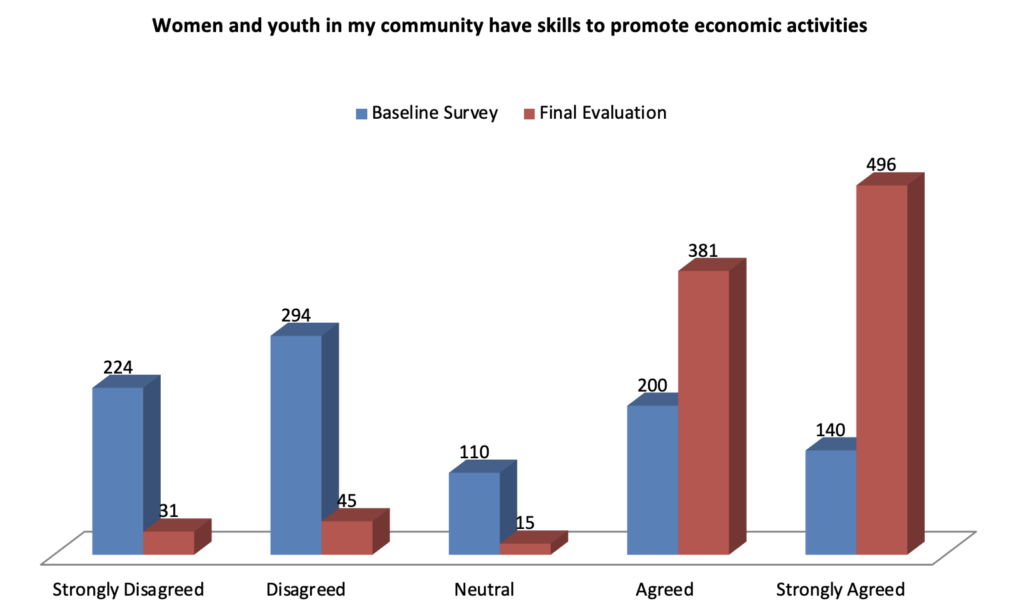
There were several recommendations to enhance future projects of this nature. They include the continuation and expansion of intercommunity dialogue to sustain the realized social cohesion, bolstering the women’s initiatives that increase gender equality while strengthening community cohesion, formalizing peace structures within local governance structures, and providing funding and authority to create a mechanism to address conflicts and achieve sustainable peace. In addition, it is critical to engage youth in peacebuilding training and activities to prepare them for their role as future moral and innovative leaders.
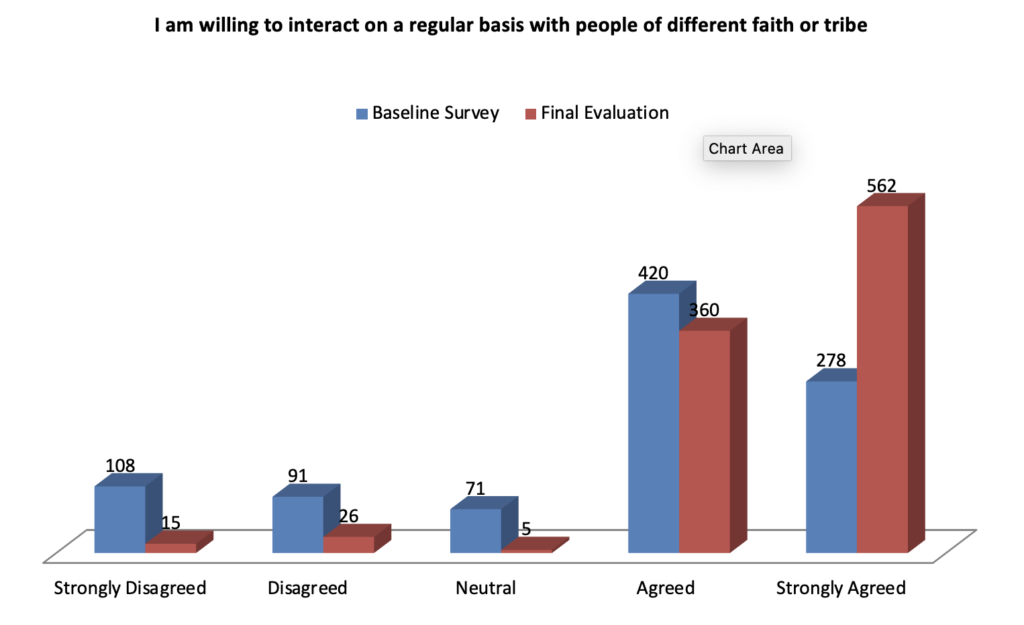 The final evaluation’s comparison to the comprehensive baseline survey confirmed the focus group’s positive results, yet some challenges remain. Limited financial and logistical resources impeded the ability to provide some activities while impacting long-term intervention sustainability. In addition, security concerns in conflict-prone areas can prove challenging to ensure the safety and security of all involved parties impeding project execution and community involvement.
The final evaluation’s comparison to the comprehensive baseline survey confirmed the focus group’s positive results, yet some challenges remain. Limited financial and logistical resources impeded the ability to provide some activities while impacting long-term intervention sustainability. In addition, security concerns in conflict-prone areas can prove challenging to ensure the safety and security of all involved parties impeding project execution and community involvement.
Engaging diverse community members from various backgrounds and religions creates a solid foundation to achieve peaceful coexistence based on GPF’s vision of One Family Under God. Dauda Barnabas, a focus group participant, underscored the power of interfaith dialogue when he stated, “It is a good development for people of different faiths coming together for the purpose of peace, which is better than individual religion or tribe. It also made us understand we are one family under God.”

